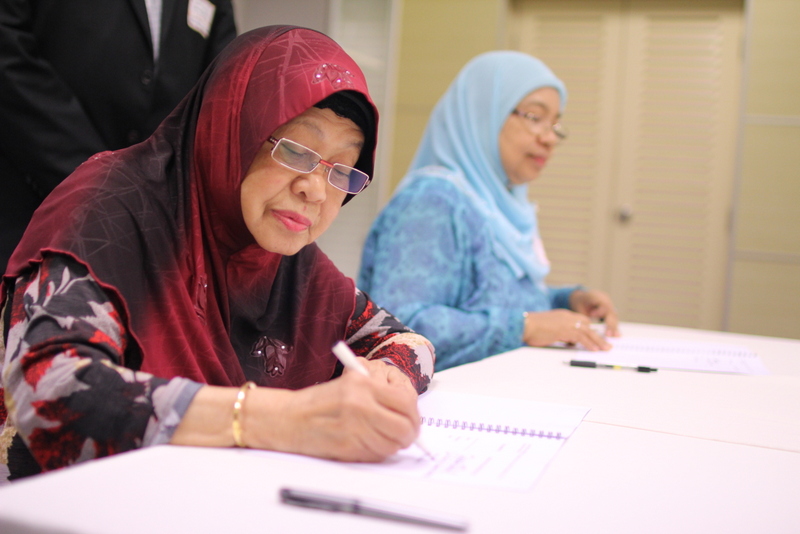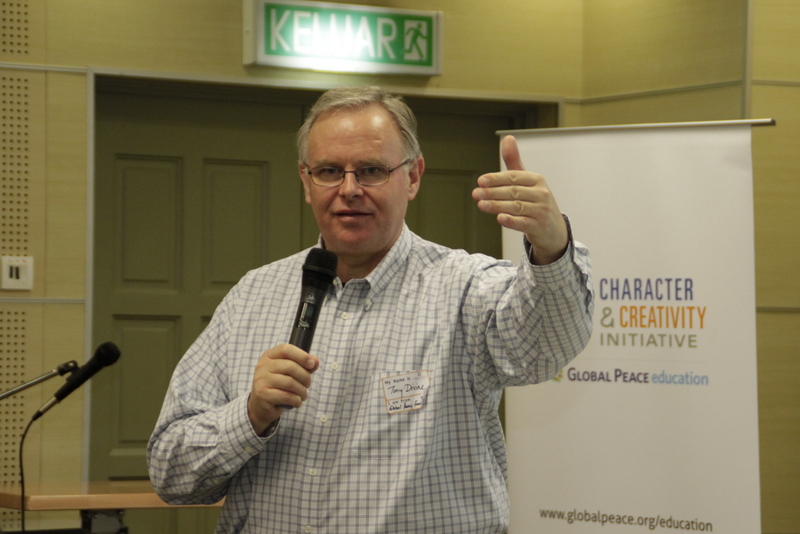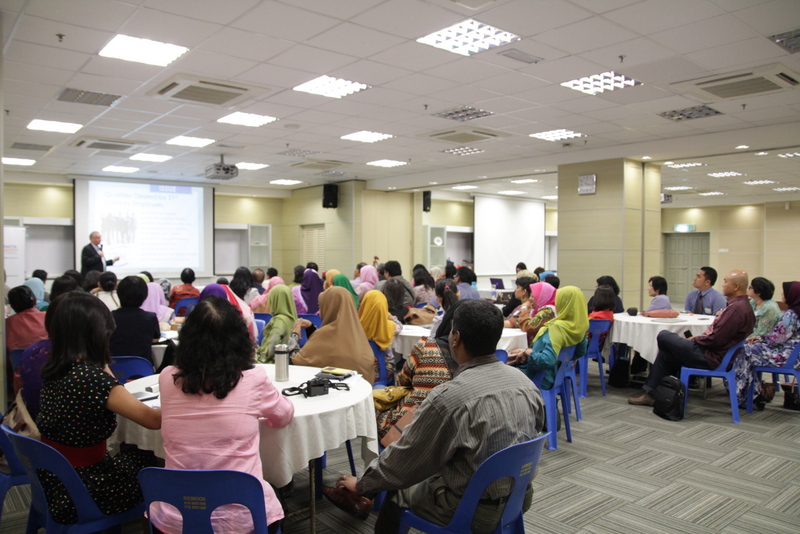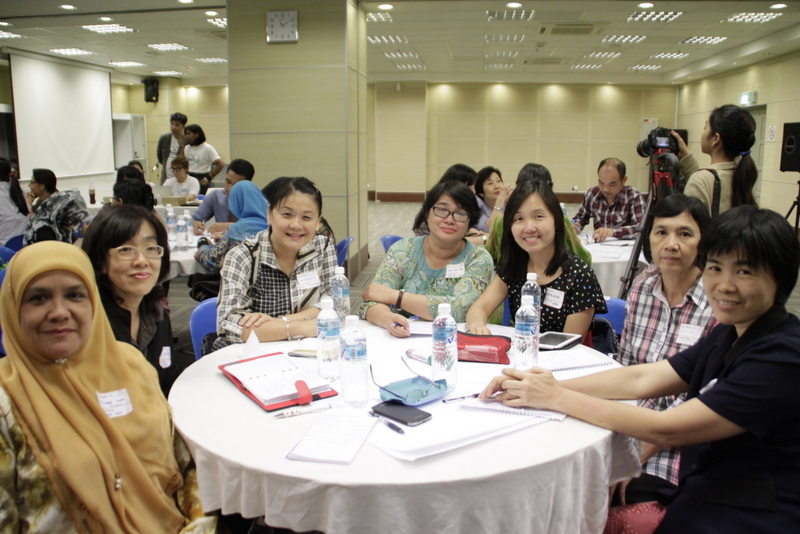Transforming education is a seemingly impossible task to many but not to the Global Peace Education division. The Character and Creativity Initiative (CCI) was founded and piloted in Kenya three years ago and the results were astounding. Thus, such efforts are being rolled out in nine countries including Malaysia.

8 November 2014, Petaling Jaya, Malaysia – It was a rainy and gloomy beginning for more than 70 participants who made way to University of Malaya for a professional development workshop hosted by the Global Peace Education division.
The concept of integrating both character and creativity elements in high schools have only reached the shores of Malaysia earlier this year. The local team celebrates a huge milestone with six CCI schools signing a three-year long memorandum of understanding. It was an honour to have both, Dr.Tony Devine, Vice President of Global Peace Foundation International and Chairman of Global Peace Foundation Malaysia, Tan Sri Datin Paduka Seri Hajah Zalehah Ismail to be present at the ceremony.
The session begun with Tuan Haji Muhammad Khailini Bin Abdul Jalil, principal of SMK Segambut Jaya sharing his short but insightful experience in implementing CCI in his school: “ The programme shows you what the twenty first century needs. It show us how to build character in our students in this day and age; these elements have been part of the education system but it died off over time as people focus much more on grade points.” He too mentioned, it is important for the pioneering CCI schools in Kuala Lumpur and Selangor to show proof to the ministry in order to win them over.
The highlight of the professional development workshop covers the theory of change, in which education must become relevant to the ever-fluid twenty first century world; failure in education contributes to large-scale unemployment, which leads to economic insecurity, social and political instability. Education, which focuses less on character, creates leaders with zero moral conscience, which leads to corruption. Transforming education is not optional; it is a must to provide meaningful and productive learning experience to prepare students for success after graduation.
 Dr. Tony, lead trainer of the workshop emphasizes on three key aspects to the success of transforming education which are to understand competencies necessary to be successful in society, engage with educators and its surrounding supporting system to see beyond grade points and connect with like-minded people and organisations to deliver results collectively. The ultimate goal of such efforts is to have graduates prepared for success, abundance of employment opportunity, societal stability and sustainable economic development.
Dr. Tony, lead trainer of the workshop emphasizes on three key aspects to the success of transforming education which are to understand competencies necessary to be successful in society, engage with educators and its surrounding supporting system to see beyond grade points and connect with like-minded people and organisations to deliver results collectively. The ultimate goal of such efforts is to have graduates prepared for success, abundance of employment opportunity, societal stability and sustainable economic development.
According to Dr.Tony, there are 260 million youth in developing and developed economies who are passive, they are neither in the workforce nor in campus; 450 million jobs will have to be created worldwide to provide sufficient employment opportunity for the growing youth bulge.
The competencies adored by employers of the present world are broken down into two main clusters, which are character and creativity. The first describes a the ability to work in a team, tenacity, grit and the ethics one possesses, the latter highlights the innate curiosity, the ability to solve problem through innovative means and the initiative to learn more about one’s surrounding.
 The second half of the workshop was run based on how learning should not be seen as a burden but a fun and on-going process. Participants were shuffled into groups to discuss how educators can empower each other through trainings hosted by Global Peace, inter-school collaboration among innovation teams and working cell-groups. For many educators, the first step to help transform education is to move out of the comfort zone, which is to actively share problems with peers to seek best solution. Education should mirror the functioning society where both teachers and students work in teams with a set of core values agreed upon; such arrangement instills ownership of education in students as they are involved in every step of the way.
The second half of the workshop was run based on how learning should not be seen as a burden but a fun and on-going process. Participants were shuffled into groups to discuss how educators can empower each other through trainings hosted by Global Peace, inter-school collaboration among innovation teams and working cell-groups. For many educators, the first step to help transform education is to move out of the comfort zone, which is to actively share problems with peers to seek best solution. Education should mirror the functioning society where both teachers and students work in teams with a set of core values agreed upon; such arrangement instills ownership of education in students as they are involved in every step of the way.
 The battle to transform education is no easy task, however, with the right leadership in each school supported by passionate and organised innovation team teachers, it is only a matter of time until we can collectively produce great leaders for a progressive future.
The battle to transform education is no easy task, however, with the right leadership in each school supported by passionate and organised innovation team teachers, it is only a matter of time until we can collectively produce great leaders for a progressive future.






